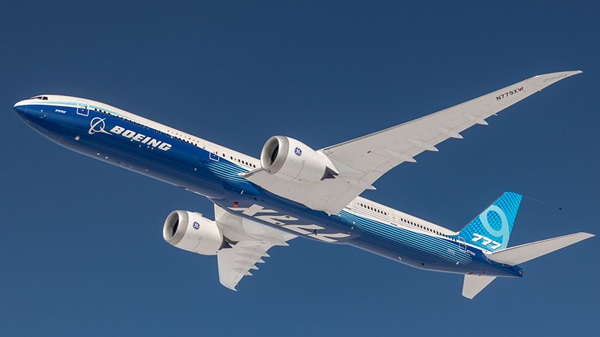1. Boeing expands in Europe
Dormagen, Germany – May 2025 — Boeing has officially opened its third distribution center in Germany, reinforcing its commitment to enhancing customer support and supply chain efficiency across Europe. The new facility, located in Dormagen, North Rhine-Westphalia, marks a significant milestone in Boeing’s global logistics strategy.
Spanning over 4,500 square meters, the Dormagen center will house more than 9,000 unique spare parts for Boeing aircraft, including large components such as landing gear. This expansion is designed to reduce delivery times for major European airline customers, enabling faster repairs and more efficient maintenance.
“This new warehouse exemplifies our dedication to being where our customers need us most,” said William Ampofo, Senior Vice President of Parts & Distribution and Supply Chain at Boeing Global Services. “Service excellence is the cornerstone of our mission, and this facility strengthens our ability to deliver critical parts swiftly and reliably.”
The Dormagen site joins Boeing’s existing German distribution centers in Norderstedt and Henstedt-Ulzburg. Collectively, these facilities form a regional network that supports Boeing’s commercial customers throughout Europe. The new center is expected to ship approximately 30,000 parts annually and is stocked with the fastest-moving items in Boeing’s spares catalog.
Strategically located near Cologne and Düsseldorf airports, the Dormagen center is operated in partnership with logistics provider GXO. “We are proud to extend our collaboration with Boeing to Germany,” said Richard Cawston, Chief Revenue Officer at GXO. “This facility ensures a seamless flow of deliveries to Boeing customers and reflects our shared commitment to operational excellence.”
Dr. Michael Haidinger, President of Boeing Germany, emphasised the broader significance of the investment: “With this new site, we are doubling down on our commitment to the German aerospace community, our customers, and local partners.”
As one of nine global distribution centers dedicated to commercial spare parts, the Dormagen facility underscores Boeing’s ongoing investment in regional infrastructure to support its growing customer base and ensure a resilient, responsive supply chain.
2. India greenlights HCL-Foxconn chip plant
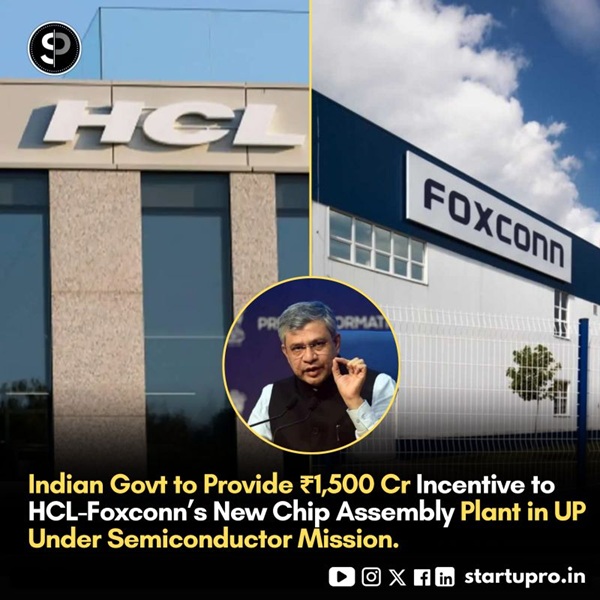
May 19, 2025 | New Delhi — India’s Union Cabinet has approved the establishment of a new semiconductor manufacturing facility—a joint venture between India’s HCL Group and Taiwan’s Foxconn. The plant, with an investment of ₹37.06 billion (approximately $435 million), will be located near the upcoming Jewar Airport in Uttar Pradesh’s Yamuna Expressway Industrial Development Authority region.
This facility marks the sixth semiconductor unit sanctioned under the India Semiconductor Mission, a flagship initiative aimed at transforming India into a global hub for electronics manufacturing. The plant is designed to produce 20,000 wafers per month and will focus on manufacturing display driver chips used in mobile phones, laptops, automobiles, and other display-based devices.
Strategic Importance
The approval comes at a time when India is aggressively pursuing self-reliance in semiconductor manufacturing, a sector critical to national security and economic growth. Prime Minister Narendra Modi has made chipmaking a cornerstone of his “Atmanirbhar Bharat” (self-reliant India) vision, especially as global supply chains continue to shift in the post-pandemic era.
Information and Broadcasting Minister Ashwini Vaishnaw emphasised that the facility will begin commercial production by 2027, adding that the project is expected to significantly contribute to India’s electronics ecosystem.
A Resilient Partnership
This joint venture follows a series of strategic moves by both companies. In January 2024, HCL and Foxconn had already partnered on a chip packaging and testing venture. Foxconn, which holds a 40% stake in the new semiconductor unit, has been steadily expanding its footprint in India, including a \$1.5 billion investment announced in late 2023.
Industry Context
India’s semiconductor landscape has seen mixed fortunes. While some projects like the \$19.5 billion Vedanta-Foxconn venture collapsed due to regulatory and cost concerns, others like Tata Group’s \$11 billion chip facility and Micron’s \$2.7 billion packaging plant are progressing steadily.
The HCL-Foxconn plant is expected to play a pivotal role in meeting the growing domestic demand for semiconductors, driven by rapid growth in sectors such as consumer electronics, automotive, medical devices, and defense.
3. Schneider expands Missouri facility
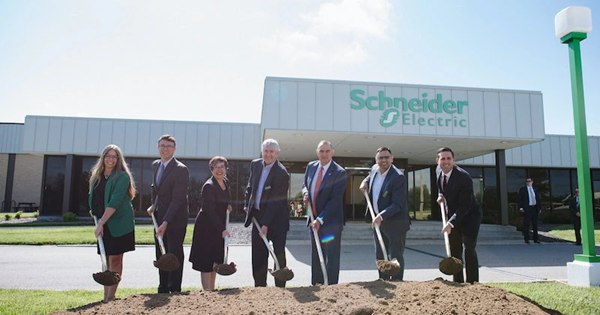
Columbia, Missouri – May 13, 2025 — Schneider Electric, a global leader in energy management and automation, has officially broken ground on a significant expansion of its manufacturing facility in Columbia, Missouri. The project marks a pivotal step in the company’s broader U.S. investment strategy aimed at bolstering domestic manufacturing and supporting the nation’s growing energy and AI infrastructure needs.
The groundbreaking ceremony, attended by Missouri Governor Mike Kehoe and other local dignitaries, celebrated the start of construction on a 58,000-square-foot addition to the existing facility. This expansion is expected to create over 200 new jobs in the region and enhance Schneider Electric’s production capabilities for molded case and air circuit breakers.
“This expansion is a testament to our commitment to supporting our customers and the U.S. economy,” said Agustin Lopez Diaz, Senior Vice President of Global Supply Chain North America at Schneider Electric. “By modernising and expanding our Columbia facility, we’re not only increasing capacity but also reinforcing our supply chain resilience and ability to meet rising demand from data center and energy infrastructure developers.”
The Columbia project is part of Schneider Electric’s largest-ever capital investment in the U.S., a multi-year initiative that will see the company invest heavily in modernising and expanding its operations nationwide. The initiative is expected to generate more than 1,000 new jobs across the country by 2027.
Governor Kehoe praised the company’s continued investment in Missouri, stating, “Schneider Electric’s decision to expand in Columbia underscores Missouri’s strength as a hub for advanced manufacturing. We’re proud to support a company that’s creating high-quality jobs and driving innovation in our state.”
The upgraded facility will incorporate next-generation manufacturing technologies and an optimised floor plan to streamline operations and improve order fulfillment processes. This move aligns with Schneider Electric’s broader goals of enhancing energy efficiency, supporting sustainability, and maintaining a competitive edge in a rapidly evolving market.
As construction progresses, the Columbia community and the broader Missouri economy are poised to benefit from increased employment opportunities and a strengthened industrial base.
4. Labviva opens in London 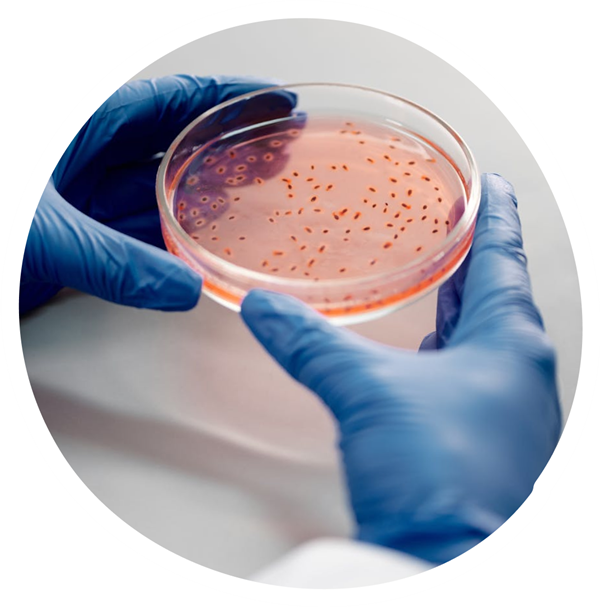
London, UK – May 15, 2025 — Labviva, the leading AI-powered procurement platform for the life sciences industry, has announced a major step in its global growth strategy with the opening of its international headquarters in London’s King’s Cross Life Sciences Hub. As part of this expansion, the company has appointed Dr. Carlo Iannicola as General Manager of Europe.
This strategic move comes at a time when the global life sciences supply chain is facing mounting challenges, including trade barriers, regulatory fragmentation, and inefficiencies in procurement processes. Labviva aims to address these issues by accelerating the adoption of its AI-enabled procurement platform across Europe, offering research institutions and pharmaceutical companies access to a vast, diversified supplier network.
“Our goal is to help improve R&D for new pharmaceuticals by supporting the collaborative procurement efforts of the European Health Public Procurement Alliance and the EU Critical Medicines Act,” said Siamak Baharloo, CEO of Labviva. “The global life sciences supply chain is ripe for transformation, and Labviva’s international expansion couldn’t have come at a better time. I’m delighted to announce the appointment of Carlo as our GM of Europe, where he will be responsible for bringing our proven AI procurement model to research organisations worldwide.”
Dr. Iannicola, a seasoned executive with deep experience in life sciences and digital transformation, expressed enthusiasm about the opportunity: “Labviva’s innovative technology is exactly what European life sciences organisations need to scale at the speed of science. I’m excited to help Labviva grow and build a strong international team that supports scientific discovery and operational efficiency.”
Labviva’s platform connects research organisations with over 90% of life sciences manufacturers in the U.S. and Europe. It enables procurement professionals to compare products and pricing from a curated list of suppliers—including small, local, and green-certified businesses—streamlining purchasing decisions while ensuring compliance and sustainability.
With AI-driven features like real-time inventory optimisation and no-touch forecasting, Labviva is poised to reduce procurement costs by up to 10% and increase productivity by as much as 80%, according to recent industry analyses.
This expansion marks a significant milestone in Labviva’s mission to modernise life sciences procurement and foster innovation through smarter, more connected supply chains.
5. Lucid expands in Europe and Middle East

May 2025 – London
Lucid Motors (NASDAQ: LCID), the American electric vehicle manufacturer known for its luxury EVs, is ramping up its global expansion efforts in 2025, with a strategic push into Europe and the Middle East. This move comes on the heels of the successful launch of its first electric SUV, the Lucid Gravity, and a renewed commitment to scaling production and international reach.
Doubling Down on Production
Lucid plans to more than double its vehicle production this year, targeting 20,000 units, up from 9,000 in 2024. The company has already delivered over 3,100 vehicles in Q1 2025, marking its fifth consecutive quarterly delivery record. Production is accelerating at its Casa Grande, Arizona facility, and Lucid is also leveraging its international manufacturing capabilities to support this growth.
Strategic Expansion into Europe and the Middle East
According to interim CEO Marc Winterhoff, Lucid is entering new markets across Europe and the Middle East, including Abu Dhabi, Qatar, and other regions soon to be announced. This expansion is part of a broader strategy to diversify its customer base and tap into growing demand for premium EVs outside the U.S.
Lucid’s AMP-2 plant in Saudi Arabia, which began assembling the Lucid Air sedan in late 2023, plays a pivotal role in this strategy. The company plans to begin exporting Saudi-made EVs to Europe and parts of Asia (excluding China) starting in 2027. A second plant in the region, with a projected annual capacity of 150,000 units, is expected to be completed by 2026.
Financial Backing and Long-Term Vision
Lucid’s expansion is strongly supported by Saudi Arabia’s Public Investment Fund (PIF), which holds a 60% stake in the company. This backing has enabled Lucid to maintain a solid liquidity position, ending Q1 2025 with $5.76 billion in cash, enough to fund operations into the second half of 2026.
Looking ahead, Lucid aims to launch a more affordable midsize EV platform, further broadening its market appeal. The company is also exploring EV battery production in Saudi Arabia, which could enhance supply chain resilience and cost efficiency.
Conclusion
Lucid’s aggressive global expansion signals its ambition to become a major player in the international EV market. With strong financial backing, expanding production capacity, and a growing product lineup, Lucid is positioning itself to compete not just in the U.S., but on the global stage.
6. Albanese visits Indonesia
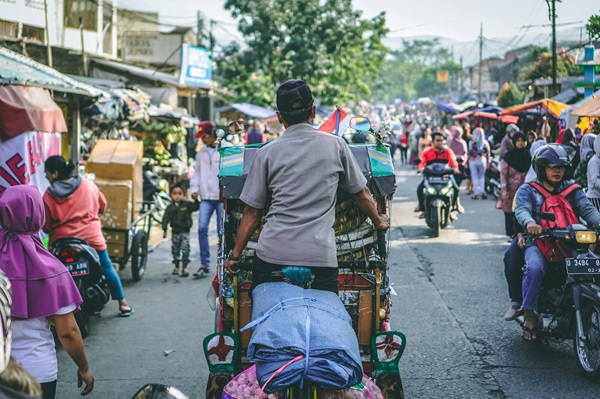
fikri rasyid via unsplash
Jakarta, May 2025 — Australian Prime Minister Anthony Albanese has completed a high-profile visit to Indonesia, marking his first overseas trip since securing a second term in office. The three-day visit, which began on May 14, underscored the growing importance of the Australia-Indonesia relationship in the Indo-Pacific region.
Albanese was warmly received by Indonesian President Prabowo Subianto at the Presidential Palace in Jakarta, where he was greeted with a ceremonial welcome featuring military honors and thousands of schoolchildren waving flags. The leaders engaged in a series of high-level discussions focused on deepening economic, defense, and strategic cooperation.
A key highlight of the visit was Albanese’s endorsement of Indonesia’s bid to join the Comprehensive and Progressive Agreement for Trans-Pacific Partnership (CPTPP), signaling Australia’s support for Indonesia’s expanding role in regional trade. He also backed Indonesia’s aspirations to join the OECD.
The two nations also reaffirmed their commitment to the Indonesia-Australia Comprehensive Economic Partnership Agreement, with particular interest in green energy collaboration and critical minerals trade.
On defense, the leaders discussed expanding cooperation under a security agreement signed last year, with Australia pledging $15 million to enhance maritime collaboration. This reflects shared concerns over regional security dynamics, particularly in the South China Sea.

